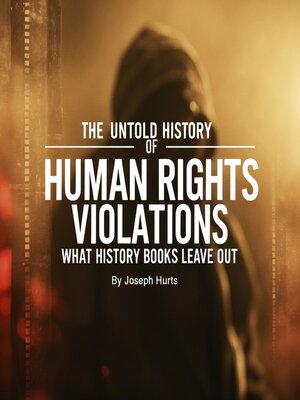The Untold History of Human Rights Violations
audiobook (Unabridged) ∣ What History Books Leave Out
By Joseph Hurts

Sign up to save your library
With an OverDrive account, you can save your favorite libraries for at-a-glance information about availability. Find out more about OverDrive accounts.
Find this title in Libby, the library reading app by OverDrive.



Search for a digital library with this title
Title found at these libraries:
| Library Name | Distance |
|---|---|
| Loading... |
This audiobook is narrated by a digital voice.
The documentation and teaching of human rights violations throughout history has been profoundly shaped by political power, institutional interests, and cultural biases that determine which atrocities receive attention and which are forgotten or minimized. This selective historical memory creates dangerous gaps in our understanding of how systematic violations of human dignity occur, persist, and are eventually addressed or ignored. Understanding these patterns of historical silence is crucial for developing more complete and honest accounts of human rights abuses and for preventing their recurrence.
The institutional mechanisms that shape historical narratives about human rights violations operate through educational systems, media organizations, government archives, and academic institutions that each have their own constraints, incentives, and political pressures. Educational curricula are often influenced by national governments that may have reasons to minimize certain historical events while emphasizing others. Textbook publishers operate in competitive markets where controversial content can reduce sales, leading to sanitized versions of history that avoid difficult or politically sensitive topics. Academic historians may face pressure from institutions, funding sources, or professional communities that discourage research into certain topics or that prefer particular interpretations of historical events.
The temporal dynamics of historical memory reveal how the passage of time can both reveal and obscure human rights violations depending on political circumstances and power relationships. Some atrocities that were initially hidden or denied gradually come to light as political systems change, archives are opened, and survivors gain the freedom and resources to tell their stories.







